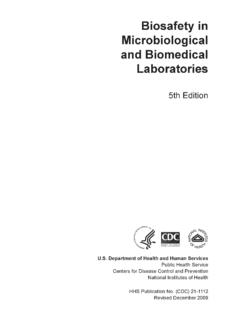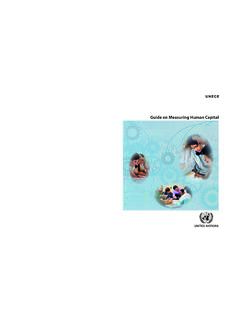Transcription of Academic english reading and writing across the ...
1 ContinueAcademic english reading and writing across the disciplines pdf 2018 across the Disciplines, a refereed journal devoted to language, learning, and Academic writing , publishes articles relevant to writing and writing pedagogy in all their intellectual, political, social, and technological complexity. across the Disciplines shares the mission of the WAC Clearinghouse in making information about writing and writinginstruction freely available to members of the CAC, WAC, and ECAC communities. ATD provides CAC researchers, program designers, and teachers interested in using communication assignments and activities in their courses with a venue for scholarly debate about issues of disciplinarity and writing across the curriculum.
2 The journal embraces abroad commitment to cross-disciplinary emphases in writing studies and invites relevant submissions from individuals in all fields of inquiry. ATD is a quarterly publication. This issue of across the Disciplines features three articles and two book reviews. Mike Palmquist, Pam Childers, Elaine Maimon, Joan Mullin, Rich Rice, Alisa Russell, and David (2020) offer a broad perspective on writing across the Curriculum in a multimodal article that will quickly find its place in the syllabi of graduate courses on WAC. Articles by Adele Leon (2020) and Shakil Rabbi (2020) exemplify some of the very features of work in WAC that Palmquist et al. claim will keep the movement relevant in thecoming decades.
3 Both studies draw on foundational ideas in the field, with Leon examining low-stakes writing and Rabbi revisiting James Britton s transactional function of writing . Each piece engages meaningfully and empirically with our field s current interest in transfer and threshold concepts of writing , explore writing development amonggraduate students in the Academic disciplines, and consider the implications of their research for pedagogy, faculty development, and student support. The two book reviews in this issue offer readers a window into recent and important books published by the University Press of Colorado. Matthew Sautman (2020) reviews 2018's WritingAssessment, Social Justice, and the Advancement of Opportunity, edited by Mya Poe, Asao Inoue, and Norbert Elliot, and Emma Lee Guthrie (2020) reviews Michelle LaFrance s 2019 Institutional Ethnography: A Theory of Practice for writing Studies Researchers.
4 introduction to Volume 17, Issue 3/4 michael J. Cripps DOI: Featured Articles: Fifty Years of WAC: Where Have We Been? Where Are We Going? Mike Palmquist, Pam Childers, Elaine Maimon, Joan Mullin, Rich Rice, Alisa Russell, & David R. Russell DOI: On the 50th anniversary of the start of the writing across the curriculum movement, the authors explore thehistorical foundations of the movement, consider key developments that have occurred since its emergence as one of the most enduring and successful education reform movements in North America, and reflect on potential directions for future growth. The authors include in a wide range of voices from the WAC community via quotations frompublished work and original videos provided by WAC scholars.
5 Low-Stakes writing as a High-Impact Education Practice in MBA Classes Adele Leon DOI: Studies examining writing as a High-Impact Education Practice (HIP) have focused primarily on writing in terms of major project assignments, thus directing attentionaway from the promising high impacts that low-stakes writing (LSW) assignments have on student learning. This study piloted assigning LSW in two MBA classes to test the extent to which LSW assignments align with Anderson et al.'s (2016) study on high-impact writing assignments, and further, how accessible and beneficial LSW assignments arefor non-WAC faculty and their curricula. Interview data from this study shows encouraging potential for WAC expansion and recruitment, and student survey data shows a promising relationship between LSW and the HIPs.
6 This study ultimately shows low-stakes writing to function as a HIP, recruitment tool, and resource for correcting misconceptionsabout assigning writing . Mapping Rhetorical Knowledge in Advanced Academic Writers: The Affordances of a Transactional Framework to Disciplinary Communication Shakil Rabbi DOI: Research on written communication shows that rhetorical knowledge is a key domain of disciplinary writing expertise (Gere et. ). Much of the recent work in this area has focused on the social dimensions of learning this knowledge. This article builds on these conversations with a presentation of two advanced Academic writers (Tardy, 2009) and interpreting how they conceptualize rhetorical knowledge through an understanding of Academic communication astransaction and symbolic exchange (Britton & Pradl, 1982).
7 I make a case for the value of a transactional framework for interpreting writers performance of genre situations. I also show that this framework can provide a metagenre (Carter, 2007), a way of doing writing in the discipline, and a threshold concept (Adler-Kassner & Wardle, 2015), away of thinking about writing tasks that shapes writers experiences of and learning with them. The two case studies provide an argument for the efficacy of rhetorical knowledge in fostering disciplinary genres when it is framed as understanding situations of communication. Reviews: A Review of writing Assessment, Social Justice, and theAdvancement of Opportunity, edited by Mya Poe, Asao B. Inoue, and Norbert Elliot.
8 (2018). The WAC Clearinghouse; University Press of Colorado. 438 pages. [ISBN 978-1-64215-015-5] Reviewed by Matthew Sautman, Alton High School/Southern Illinois University, Edwardsville DOI: A Review of InstitutionalEthnography: A Theory of Practice for writing Studies Researchers, by Michelle LaFrance. (2019). University Press of Colorado. 146 pages. [ISBN 978-1-60732-866-7] Reviewed by Emma Lee Guthrie, Bowling Green State University DOI: We are excited to publish this issue of across the Disciplines and are confident youwill find the four articles significant, both for the conceptual work they undertake and for the practical applications they make available to those of us involved in WAC/WID work.
9 Three articles involve explicit theorization: Cameron Bushnell (2020) theorizes an anti-racist project for WAC; Christopher Basgier and Amber Simpson (2020) explorepossible threshold concepts for the teaching of writing ; and Crystal Fodrey and Meg Mikovits (2020) articulate a theory of multimodal WAC faculty development. Two contributions invite readers to think about the challenges of writing transfer from composition to writing in the disciplines, a significant area of interest in our field: Erin Zimmerman(2020) examines differences in the ways composition textbooks and science textbooks treat visual communication; Fodrey and Mikovits invite thinking about transfer between First Year writing Seminars and writing enriched courses in the disciplines, with a focus on multimodal compositions.
10 Given that so much of WAC/WID work involves facultydevelopment, it comes as no surprise that all four articles in this issue offer insights that might be productively applied in workshops. introduction to Volume 17, Issue 1/2 michael J. Cripps DOI: Featured Articles: Reflecting on the Past, Reconstructing the Future: Faculty Members Threshold Concepts for TeachingWriting in the Disciplines Christopher Basgier and Amber Simpson DOI: This study uses narrative analysis of faculty survey and focus groups responses to identify three threshold concepts for the teaching of writing in the disciplines, complimenting the existing work on threshold concepts in writing itself: 1) effectivewriting pedagogy involves iterative, multifaceted change; 2) students development as writers can be supported through scaffolded interventions.




